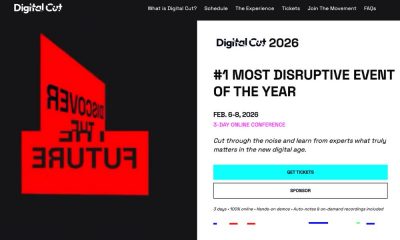Business
Wine Valet Knows Your Taste Better Than You
Published
4 years agoon

Wine is a complicated thing. Some describe wine as being “alive.” Because of the way oxygen alters the flavor, there are a lot of contributing factors when it comes to tasting wine. It can be intimidating if you don’t know what you’re tasting. It can be anxiety-inducing if you do for fear of being labeled a snob. If you’re trying to learn more about wine, it can be irritating if you don’t taste the flavor notes being described to you. What wine is supposed to be is a pleasure. Wine Valet, an Australian company, wants you to relax with wine as intended.
“You’re a WINE SNOB!”
“Too often consumers report being let down by a wine that was recommended to them. Wines are often rated good or bad based on an expert’s opinion. But every palate is different. Just because the expert said it was good, doesn’t mean that YOU will think it is good.”
Sarah Sweeney had been disappointed with the wines she was tasting. Like any wine lover, she kept trying and trying but could not match her expectations with the wines she was consuming. Things weren’t always a fit. Few things are as disappointing as a mediocre glass of wine.
“In 2018 I decided that I would ‘get into’ wine. I wanted to know what I liked and why I liked it and so I took up a regular wine subscription service because I thought that would help.”
A wine subscription service is a fairly new concept. One that lines up with the broader subscription service trend. Companies like Winc, Boxt, The Vice Wine NDA, wine.com, Our Daily Red are all subscription services. You select your wine, it’s delivered. Simple, right?
Wine is complicated, remember?
“I started dating a guy who would, without fail, serve up spectacular wines for us to share whenever we ate. I quickly noticed the disparity between the quality of the wines I was drinking from my subscription service and the wines my hot date was pouring.”
Letting It Breathe
That “hot date” was Alain Guilleman. He was bringing wines to the table so sophisticated in flavor that Sweeney had to know where he got them.
“When I enquired further, I discovered that he had his own liquor licence. This was because in the past he had difficulty sourcing the wines he liked and so took it upon himself to approach the wholesalers directly. They wouldn’t sell directly to a member of the public, so he went about getting his own liquor licence and returned to the wholesalers.”
Anyone dipping their toes into the fine wine pool latch quickly onto someone with access. They have the good stuff. Why wouldn’t you want to keep that connection? But no one wants to be a mooch. Share the secret, why don’t you?
“I felt it was unfair for the rest of us who were wading through the quagmire of wine to discover what we liked. It was a natural consequence to found a company that would bring the best wines to the consumer, hence the name Wine Valet. It also made sense that we do it together, and so our company was born.”
This Idea Has “Legs”
Sweeney and Guillemain, now married, founded Wine Valet to bring the perfect wines directly to the consumer. And not just what people tell you is the best. WineValet brings your best wine to you.
What other wine subscription services don’t do very well is learn what you like and don’t like. That’s where Wine Valet stands out. While other companies let the consumer do all the leg work, Wine Valet makes it easier for you. How do they do it?
“By no longer expecting the consumer to work out what they like. We do it for them. All they need to do is taste a few wines with us so we can learn a little about them and then we can create recommendations for them, the same way Spotify and Netflix does.”
Sweeney and Guillemain developed an app that carefully learns your tastes and suggests wines accordingly. There are so many ways to describe what you like. You also don’t always know what you like. You may think you don’t like a riesling… until you try one that surprises you.
A Sophisticated Palate
“Our app, which is only available in Australia at present, boasts the development of a new technology that analyses a person’s taste preferences and matches them with the characteristics of wines, resulting in higher rates of accurate recommendations. This means that at Wine Valet we know you and we know your palate. We’ve got you.”
Wine is supposed to be a pleasure. The snobbery is unnecessary and only serves to alienate people. There’s also no need to be intimidated by wine. Wine Valet aims to elevate wine to the masses instead of limiting it to a privileged few.
“We recently ran a corporate event where the guests were a mix of novices and almost-expert wine drinkers. Throughout the course of the evening, all people were able to enjoy the experience since it is hyper-personalised. There are no wrong answers when rating a wine based on what you like and the discovery is fun for all.”
Of course, like any innovative and passionate idea, there were doubts. Wine Valet is trying to accomplish something other wine subscription services aren’t quite succeeding in. It’s no secret that many in the wine industry like the fact that it’s exclusive. That, however, trivializes wine into a luxury item when everyone deserves a fine glass of wine.
Don’t Stress About The Dregs
“We had mentors and people in the industry telling us that what we have isn’t that special and that it’s been done before. These were intelligent and insightful people, and yet they would often struggle to catch our vision. It is challenging to articulate a complex and novel idea.
There were certainly some days where we looked at each other and said, ‘is this idea actually any good?’ We have had to continue to believe in the vision and support each other when there was very little support from outside.”
That hasn’t stopped Sweeney and Guillemain from pursuing this novel idea. Wine Valet wants to be the great equalizer in the wine world. If more people learned that wine is not just for fancy folk, and if more people felt confident saying they enjoyed wine the world would be a happier place.
Wine Valet is currently only available in Australia. Fingers crossed it makes it to the States soon.
Chris Blondell is a Philadelphia-based writer and social media strategist with a current focus on tech industry news. He has written about startups and entrepreneurs based in Denver, Seattle, Chicago, New Haven, and more. He has also written content for a true-crime blog, Sword and Scale, and developed social media content for a local spice shop. An occasional comedian, Chris Blondell also spends his time writing humorous content and performing stand-up for local audiences.

You may like

AI tools have evolved fast, and entrepreneurs now rely on them not just to automate tasks but to scale entire workflows. That said, it’s not surprising that many business owners are leveraging the power of cutting-edge technology. And this is where AI tools for entrepreneurs come in. Let’s look at what they are and a few examples you can check out.
1. Aomni Agent
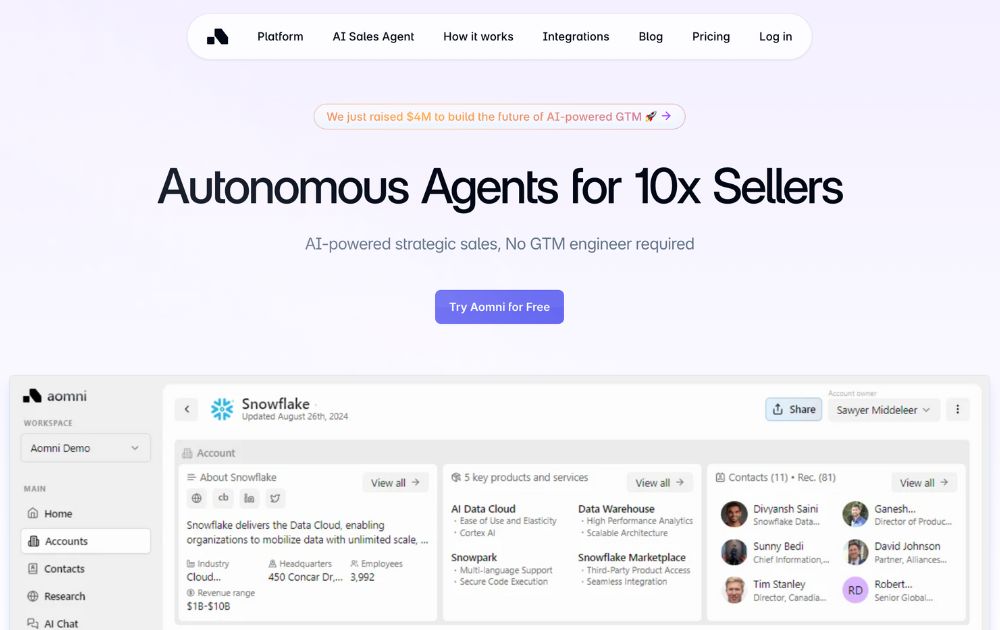
Packed with powerful AI-driven features, Aomni Agent is a tool that can help you grow your company’s outbound pipeline by conducting research to give you new Ideal Customer Profiles (ICPs). With it, you no longer have to create account plans for each of your prospects, as the AI tool will do it for you.
Aomni Agent engages with your customers, provides support, automates routine tasks, and gives you real-time insights and analytics, among many other features. To know its pricing and additional information, you need to contact them directly through their website.
2. Pictory
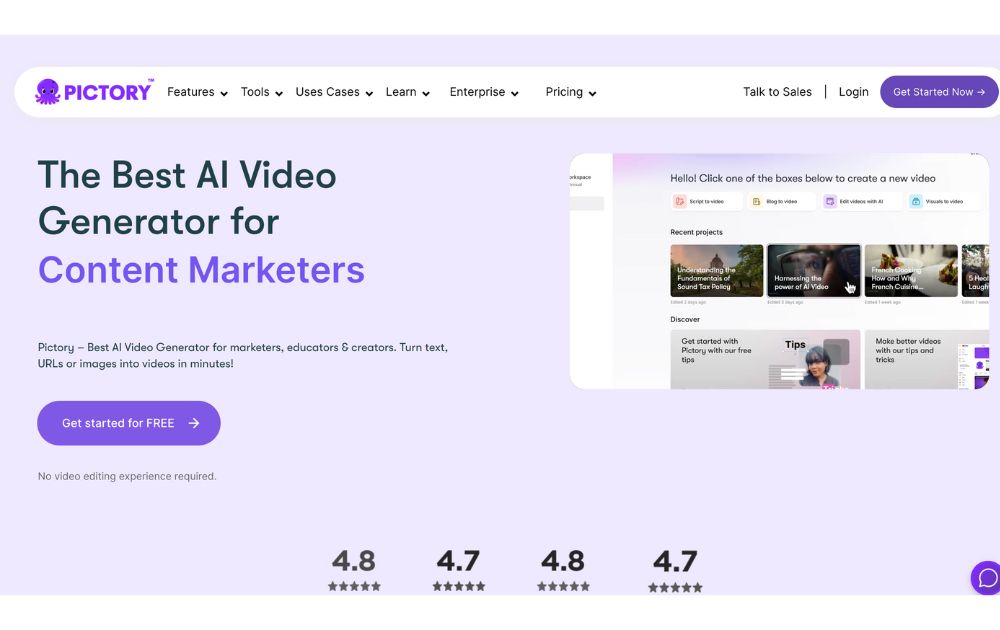
A video creation tool, Pictory, can help you create engaging and professional videos in minutes. It uses AI that automatically generates videos from your text, images, and audio. This means you get excellent results even without any video editing skills.
You can use Pictory to generate videos from your blog posts, articles, and other text. It can also edit existing videos and add images, music, or text. It offers a free trial and three plans with subscription fees that range from $23 to $119 per month.
3. Zeda.io
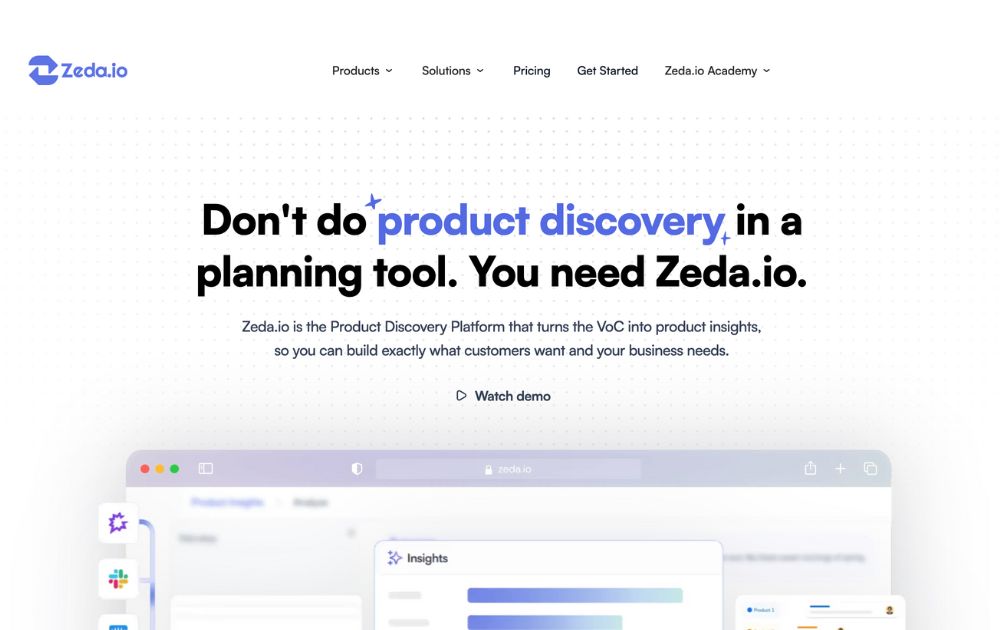
Zeda.io has grown into a powerful AI-powered product operating system. With its 2.0 update, the platform now connects customer feedback, product strategy, roadmapping, and internal documentation into a single intelligent workspace.
Its AI engine analyzes thousands of customer inputs, from surveys to reviews to support tickets, to identify patterns, prioritize features, and suggest product improvements. What used to take days of manual synthesis now takes minutes. The updated version also includes AI-generated product briefs, automated roadmap updates, and integrations with popular tools like Slack, Notion, and HubSpot.
4. Slite Ask
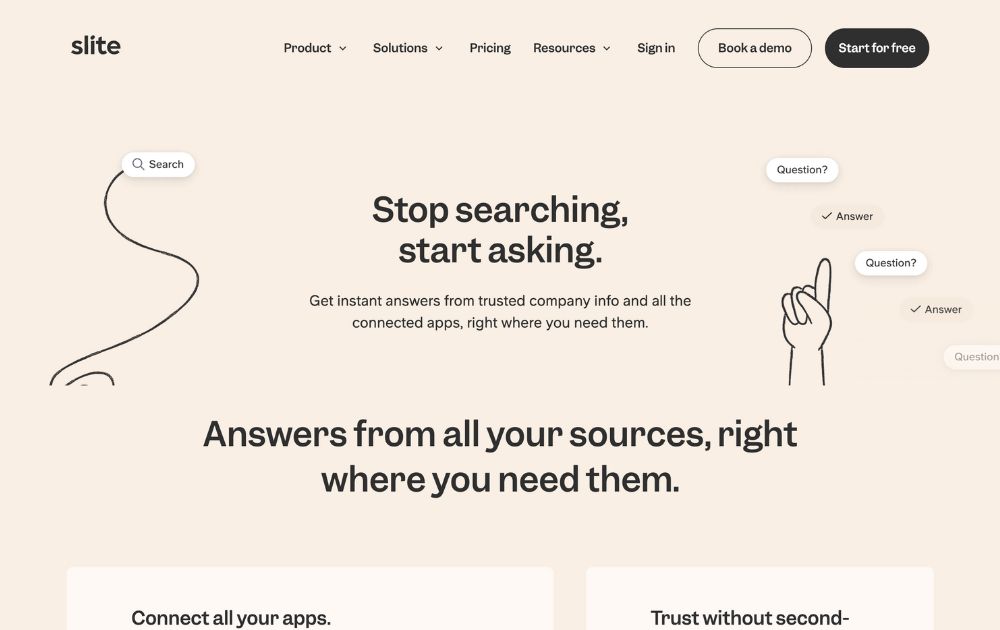
Slite Ask is one of the most reliable AI knowledge-base assistants for teams. Instead of manually searching docs or old messages, entrepreneurs can simply “ask” a question and get an instant answer based on their workspace knowledge.
The AI scans company documents, policies, SOPs, and internal notes to deliver accurate responses without hallucinations. This makes onboarding smoother and speeds up decision-making, especially for remote or hybrid teams.
5. Credal.ai
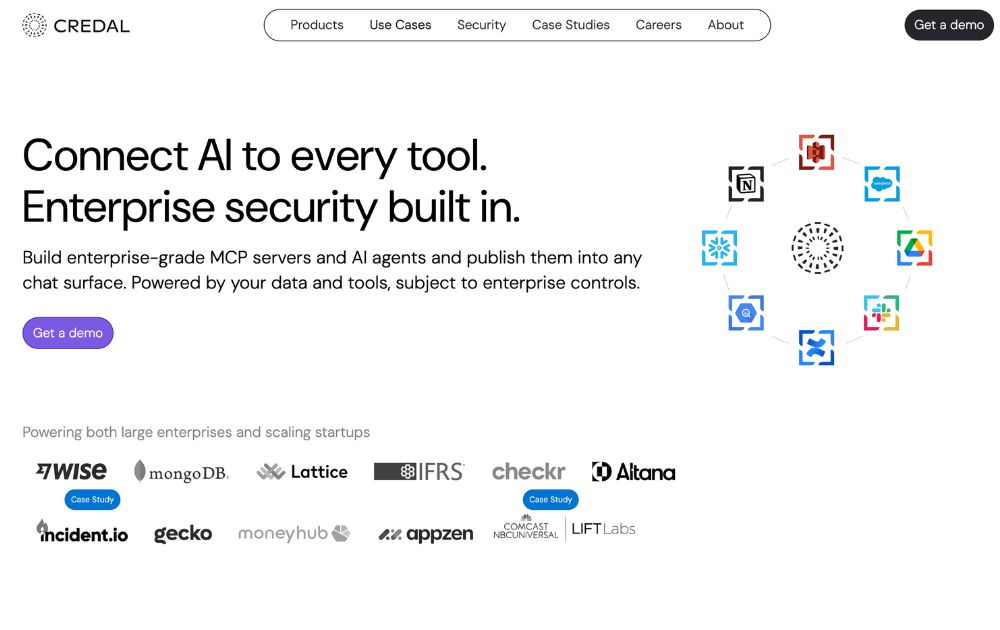
Keep your data safe with an AI tool that’s perfect for entrepreneurs. Credal.ai is a software that provides a secure environment for AI applications to run and monitors them for any potential security threats. This helps you protect your business’s sensitive data from unauthorized users.
Credal.ai protects your data from leaks, malicious codes, and unauthorized access. It has a free plan but with limitations, so to get the most out of this AI tool, a Team or Enterprise plan is recommended. Pricing starts at $500 per month.
6. Webscraping.AI
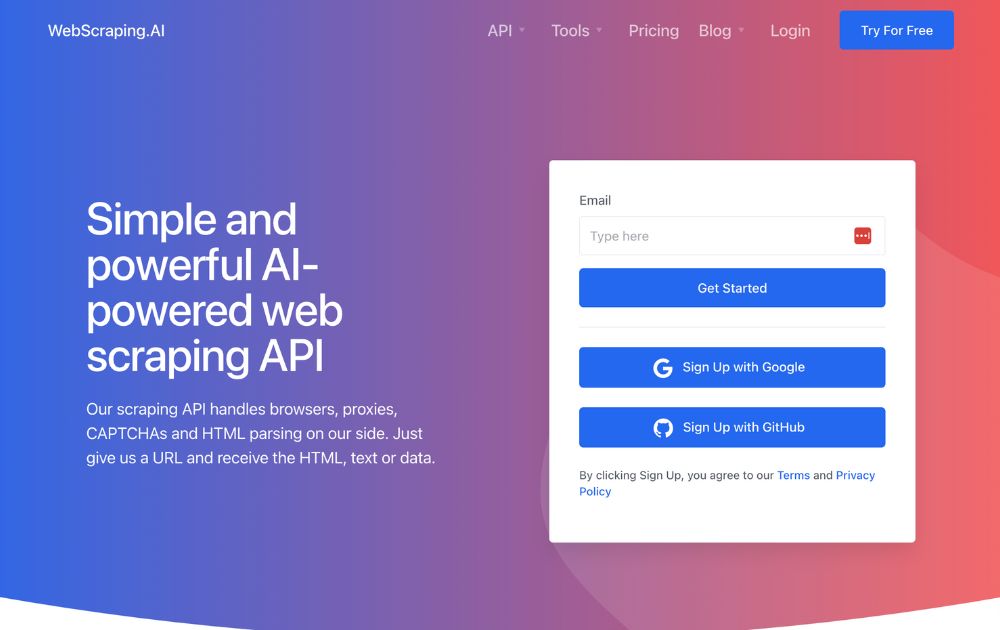
Web scraping is the process of extracting data from a website, such as stock prices, product details, company contacts, and many more. If you want access to this information, you’ll need Webscraping.AI. It is easy to use and won’t require you to have any coding or technical skills. All you need to do is enter the website you want to scrape, and the tool will automatically get the data from the website.
Webscraping.AI can help business owners make better decisions by providing accurate data to identify new opportunities. It can also help them make better decisions for their strategies. Pricing for this AI tool for entrepreneurs ranges from $29 to $249 per month, with no hidden fees.
7. ValueProp.dev
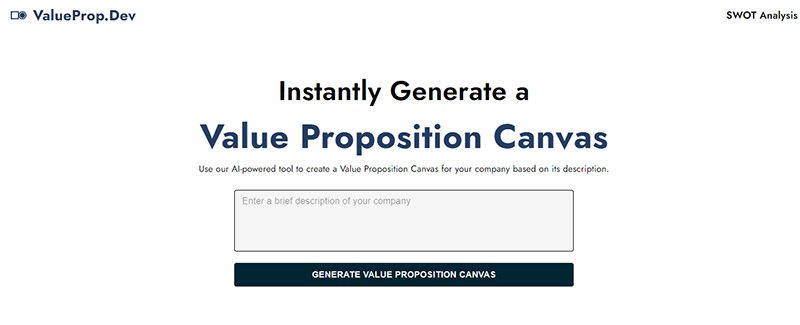
A value proposition is a statement that tells your customers what your product or service is all about. This can be tricky, but worry no more, as ValueProp.dev is an AI tool for entrepreneurs created explicitly for this. It uses machine learning to analyze your customer data to generate unique value propositions for you.
ValueProp.dev can help you improve your business by generating value propositions that significantly increase customer acquisition, retention, and sales. It is free for up to three value propositions, but they also have premium plans for more options and features. Pricing starts at $29 per month.
8. Lovo.ai

A text-to-speech and text-to-video platform, Lovo.ai can help you create engaging and informative content for your content marketing strategies. It uses AI to generate realistic and human-loke voiceovers, videos, avatars, and others. You can extend your reach globally as this tool can do voiceovers and videos in more than 140 languages.
Lovo.ai can help you increase your engagement, improve your SEO rankings, and boost conversions. You can try their free plan to give you an idea of what the tool can do for you. But for more features, a paid plan that starts at $19 per month can provide more value.
9. Zigpoll
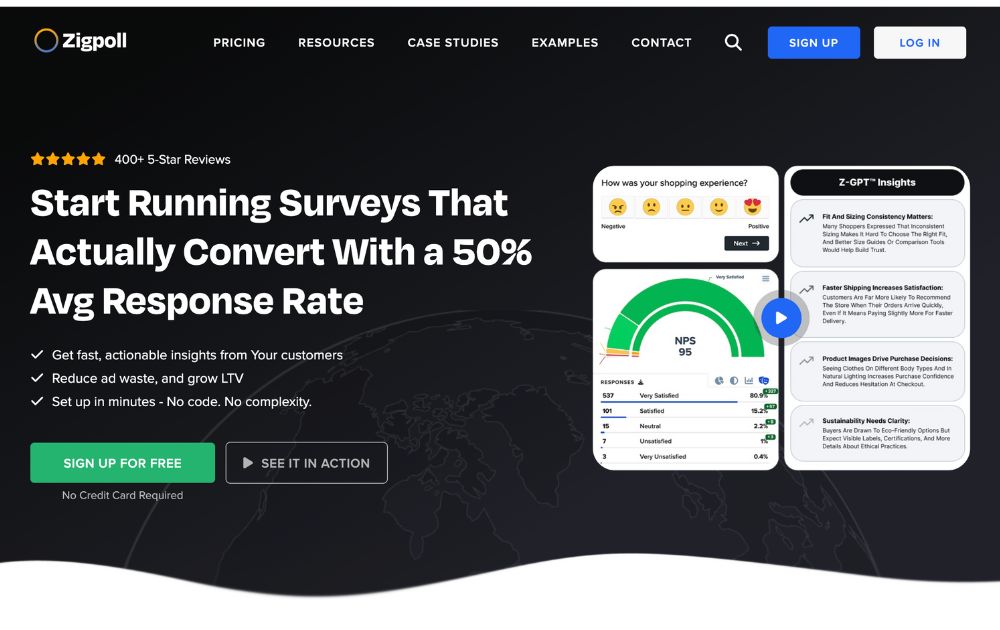
Zigpoll remains a solid choice for collecting customer insights, but its capabilities have expanded over the past two years. Today, Zigpoll uses AI to generate survey questions, summarize responses, detect sentiment, and even segment customers automatically.
Entrepreneurs can embed polls on websites, email campaigns, or post-purchase pages, then let Zigpoll’s AI categorize feedback into actionable insights. This helps brands quickly spot trends, product issues, or opportunities for upselling.
10. Pitches.ai
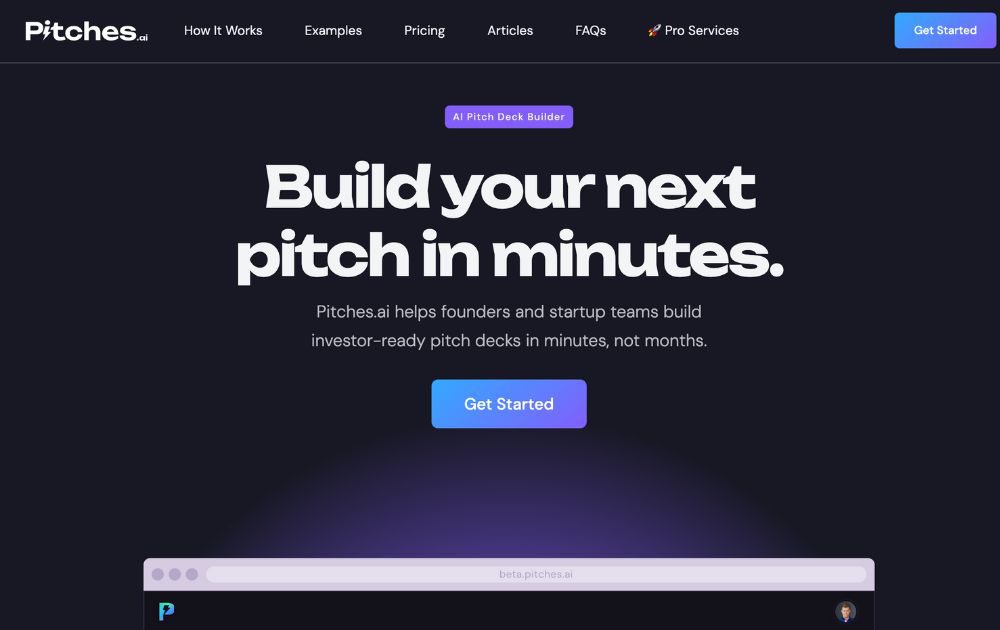
Are you looking to increase your business funding? Then creating the perfect pitch deck should be your priority. You can easily and quickly do this with Pitches.ai. It is an AI-powered tool for entrepreneurs to develop and refine pitch decks.
Pitches.ai analyzes pitch decks and gives you feedback on their structure, persuasiveness, and clarity. This gives you a higher probability of success. It offers four premium plans with prices ranging between $95 to $1,195.
Conclusion
Artificial intelligence is slowly becoming popular among business owners. Thanks to their many advantages, it’s no surprise that many will be using the technology from now on. These AI tools for entrepreneurs are a great example, and you should check them out today.
Featured Image Credit: Photo by Anna Shvets from Pexels
Business
What’s the Best Graphic Design Service for Education & eLearning?
Published
5 days agoon
November 13, 2025
TLDR: Best unlimited graphic design services for education and eLearning: ideal for quick turnaround, high-quality designs, and affordable pricing.
84% of communication is visual. Thus, for a world of education and eLearning, graphic design is imperative in the creation of projects for students and complex concepts. From interactive course materials to compelling marketing, strong visuals drive success. But finding a reliable, affordable design partner is tough.
Thus, it’s hard to come by a reputable service that can provide all your needs at a reasonable cost when it comes to project designs, turnaround expectations, anticipated quality and budgetary allowances.
But never fear! We’ve vetted what’s best for you!
1. Penji
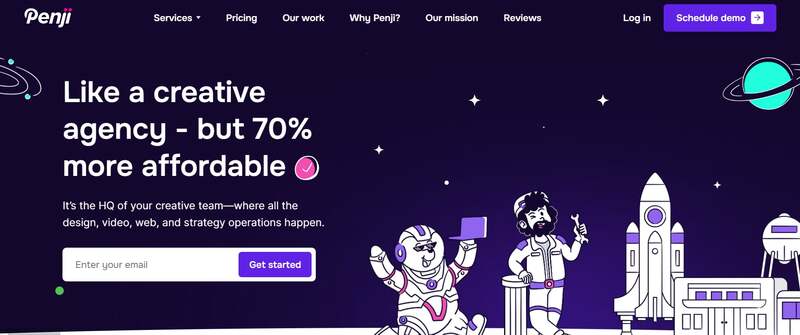
If you’re looking for the best for education and eLearning purposes, Penji has the best overall value as quality, turnaround time and offers have placed it at a reasonable flat fee monthly.
Penji is an unlimited graphic design service that works as you would expect – unlimited – which means that for a flat fee monthly, you’ll have access to your very own team of designers.
Features:
- A Well-Qualified Team of Designers: Whether you need e-learning interactive designs to course visuals (infographics, presentations) Penji’s graphic designers make everything visually appealing to an academic audience.
- Turnaround: Average turnaround is about 24-48 hours so you can keep churning out material for course creation or marketing.
- Unlimited Revisions: As many times as needed to get your requested project right.
- Accessibility and Submission Portal: Penji comes with a site that’s fairly user-friendly for ease of access in submissions, critiques and conversations.
2. Kimp
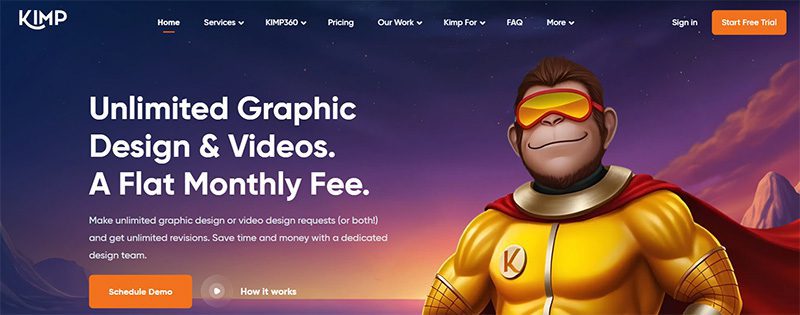
If you need an unlimited source and don’t mind one that’s second best, Kimp boasts graphics and even video. Consider this option with caution – some reviews do mention turnover can vary and this wouldn’t be the best reliable option if you’re on a time crunch for every project.
Features:
- Wide Range of Services: Kimp provides both graphic design and video services, offering a versatile creative solution.
- Dedicated Designers: You’ll work with a group as your designated team so you get to know your specific creators.
- Easier Feedback Opportunities: Feedback can be given on the Kimp site for creations with visual access as to what you want changed.
3. Design Pickle
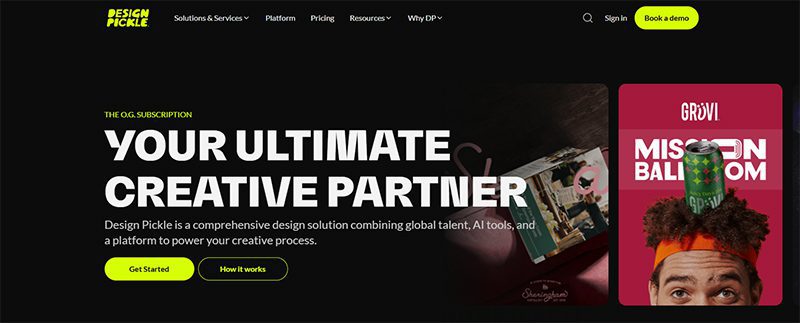
Design Pickle was one of the first unlimited graphic design services to go for an unlimited design game. This is helpful if you need custom illustrations or a presentation created for a polished look in any educated (or business) endeavor – higher tier subscriptions go with probability – but in all other worlds, it has more value than other sites when stacked against one another.
- Unlimited revisions to get the exact illustrations or graphics needed for presentations or other projects.
- Quick turnaround times to keep on schedule with 48 hour returns.
- Global Design Team: Boasts a diverse team of professional designers, offering expertise across multiple industries to match various client needs.
4. ManyPixels
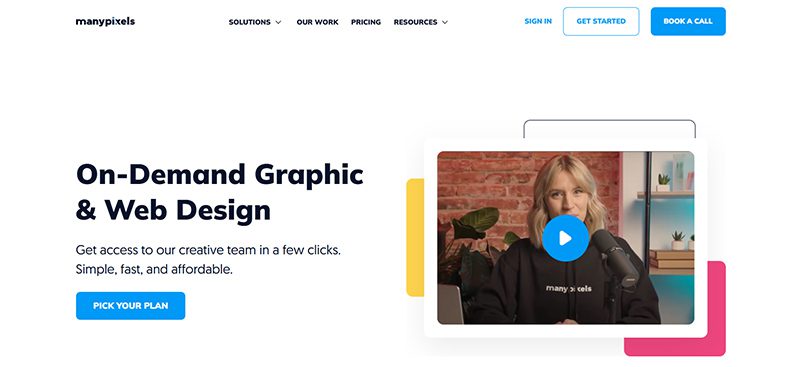
ManyPixels is another reputable source that has unlimited graphic designs services but assignment transparency which means you’ll have one assigned designer to you, but they’re a bit more transparent with regards to who may (or not) be able to help you but will get back to you with good timing.
- One Dedicated Designer: ManyPixels is a company that does not have unlimited designs, however you’ll have one assigned who will know your needs better than most.
- Good Turnaround Time: Generally they’ll turn around assignments within 1-2 days after submission regardless of simplicity/complexity.
- Reliable Designs: Good for marketing or simple visuals/templates you’d want to use for educational continuity but they may not give as specialized feedback as you’d think.
Cover Image Credit: Photo by Fox on Pexels
Business
What are the Best Graphic Design Services for Fashion Brands?
Published
6 days agoon
November 11, 2025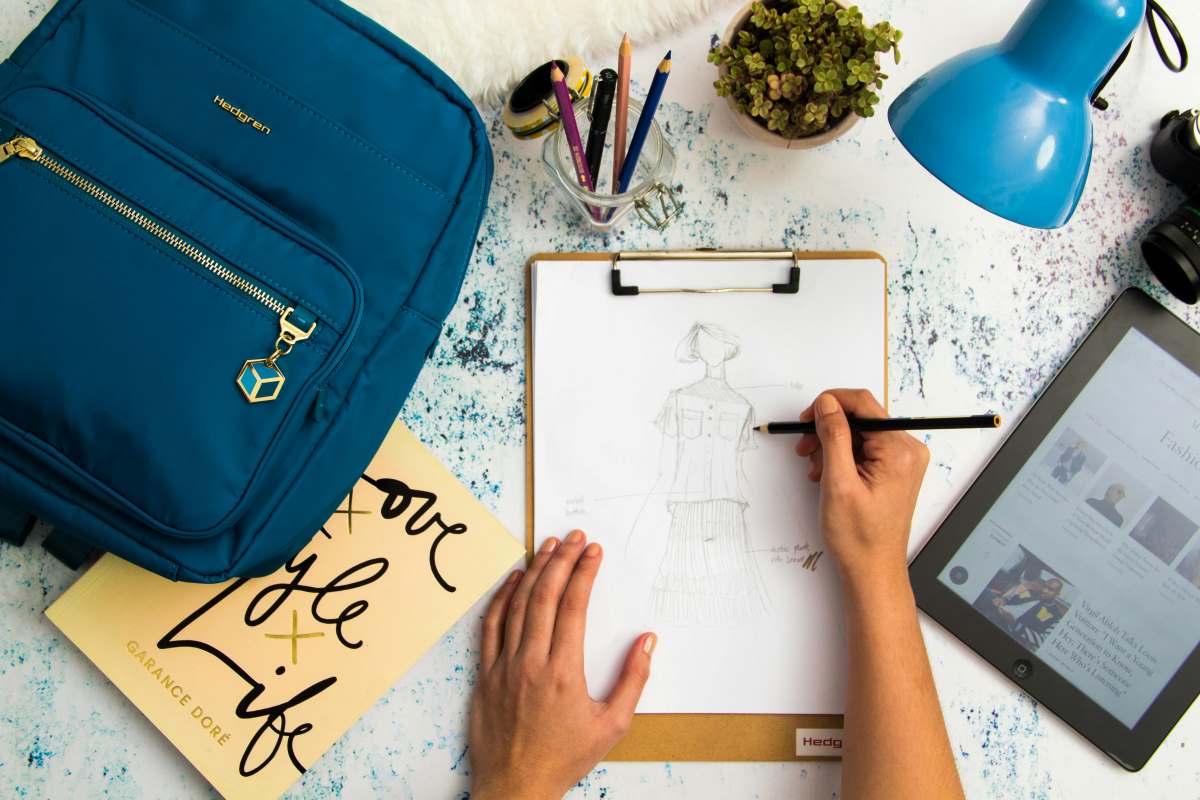
For many businesses, graphic design means conversions, credibility, and brand recall. So, if you’re in the fashion industry, you also need to have significant visual assets if growth is your priority. If you need help finding the best graphic design service for your fashion brand, we made a list of the top five:
Penji

An on-demand graphic design platform, Penji offers unlimited graphic design services for fixed monthly fees. This allows you to send as many requests for lookbooks, catalogs, packaging designs, and many other marketing materials for less. Its team of top-notch designers assures you of consistent and high-quality work worthy of your fashion business.
Kimp

Built to support the creative needs of many businesses, including fashion, Kimp is another platform that offers unlimited design requests. It can craft product mockups, campaign visuals, packaging designs, and social media graphics, among others. It also provides video editing services, making it ideal for fashion companies that run reels, seasonal promos, or behind-the-scenes edits.
Designity

Combining agency-level creative direction with flexible access to US designers, Designity suits fashion brands that need polish, strategy, and scalability. They can provide you with social media graphics, online ads, label designs, logo and branding, and magazine layouts, among other key services.
Flocksy

If your business needs video editing, copywriting, and voice-over services, then Flocksy is the best graphic design service for your fashion brand. In addition, it also offers custom illustrations, packaging design, infographics, and many other design services. It operates on a flat-rate pricing model, making it a more cost-effective option than hiring freelancers or working with expensive agencies.
Reel Unlimited

With its predictable pricing and wide array of graphic design services, Reel Unlimited is an excellent design solution for fashion brands. Like many on this list, it offers unlimited design requests and fast turnaround times, making it the ideal option for those with tight schedules and limited budgets.

Meet the Speakers of Digital Cut 2026: Seth Godin, Ali Abdaal & Neil Patel

What’s the Best Graphic Design Service for Beauty & Wellness Brands

10 Best AI Tools for Entrepreneurs

Our Top 10 Video Editing Tools for Smarter Content Production

What’s the Best Graphic Design Service for Education & eLearning?

What are the Best Graphic Design Services for Fashion Brands?

How TikTok and Instagram Track You Using In-App Browsers

Our Top 10 Video Editing Tools for Smarter Content Production

How TikTok and Instagram Track You Using In-App Browsers

Top 10 Free and Paid Employee Communication Tools

10 Best AI Tools for Entrepreneurs

10 Best Photo Editing Apps for Personal and Business Use in 2026

What’s the Best Graphic Design Service for Healthcare Brands?

What’s the Best Graphic Design Service for Social Media Campaign?
Trending
- Technology4 days ago
Our Top 10 Video Editing Tools for Smarter Content Production
- Business4 days ago
10 Best AI Tools for Entrepreneurs
- Uncategorized4 days ago
What’s the Best Graphic Design Service for Beauty & Wellness Brands
- Uncategorized5 hours ago
Meet the Speakers of Digital Cut 2026: Seth Godin, Ali Abdaal & Neil Patel



